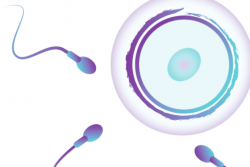Your thyroid gland is a butterfly shaped organ that sits at the base of the neck. It is part of the body’s hormone system, called the hypothalamus pituitary axis (HPA Axis), or simplistically the endocrine system.
The thyroid makes two main hormones: triiodothyronine (T3) and thyroxine (T4). When these two hormone levels are low in the body, the brain (hypothalamus) signals your pituitary gland (master hormone gland) to secrete thyroid stimulating hormone (TSH). TSH tells your thyroid gland to make more T3 and T4. When more T3 and T4 are made, there is a negative feedback loop which tells the brain to stop TRH secretion.
T3 and T4 then regulate the metabolism of many cells in the body. The most common function we know is the regulation of metabolism, heart rate, body weight and body temperature. When the thyroid is not working properly, there are signs of hyper functioning (anxiety, palpitations, hair loss, sweating, moodiness), or hypo functioning (fatigue, dry skin/hair, depression, weight gain, constipation, hair loss).
Both a hypo or hyper functioning thyroid has been known to negatively impact female and male fertility.
Hypothyroidism has been related to:
- Menstrual irregularities like:
- Changes in cycle length and amount of bleeding
- Breakthrough bleeding, frequent bleeding
- Very heavy periods (menorrhagia),
- Irregular timing of periods (oligomenorrhea)
- Low T3 and positive thyroid antibodies have been associated with a lower antral follicle count in cases of diminished ovarian reserve or unexplained infertility.
- Overall lower pregnancy rates.
In hyperthyroid cases we see:
- Menstrual irregularities like:
- Losing your periods
- Extremely light periods
- Irregular periods
- No ovulation
- Hormone imbalances: excess estrogen levels in all phases of menstrual cycle from decreased clearance, increased androgen levels, imbalanced FSH and LH ratios in the follicular phase of the menstrual cycle.
There aren’t many studies on thyroid function and male fertility, but the ones published have demonstrated that hypothyroidism has been associated with:
- Altered hormone metabolism
- Reduced libido and erectile dysfunction
Whereas in hyperthyroidism, there has been association with:
- Altered hormone metabolism
- Lower sperm count
- Decreased sperm motility
- Reduced forward swimming sperm specifically (progressive motility)
- Other factors including reduced libido, premature or delayed ejaculation, or erectile dysfunction
The good news is research shows once these hormone imbalances have been corrected, fertility outcomes improve. You can learn more about how we treat thyroid disorders here. To book with one of the naturopathic doctors at Conceive Health, give us a call today. Virtual preconception care appointments are now available!
References:
- Practice Committee of American Sociated of Reproductive Medicine. Subclinical hypothyroidism in infertile female population: a guideline. Fertil Steril 2015; 104: 545-53.
- Cho, MK. Thyroid dysfunction and subfertility. Clin Exp Reprod Med 2015; 42 (4): 131-135
- Krassas, GE., Poppe, K., Glinoer, D. Thyroid function and human reproductive health. Endocrine Reviews 31; 702-755. 2010



